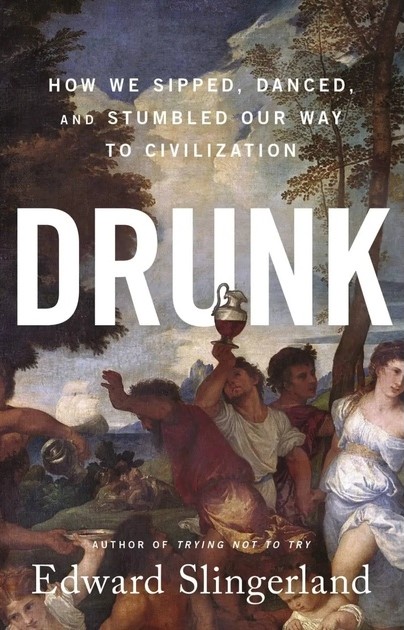What if we’ve been asking the wrong questions about alcohol all along? Drunk by Edward Slingerland is part anthropology, part love letter to our messy, intoxicating humanity, and it’s struck a chord with readers far beyond academia.
I first came across it thanks to the brilliant Wine Blast with Susie & Peter podcast: a reminder that good recommendations often come from people who know the landscape.
For me, this book does more than entertain; it reinforces something I’ve always believed: alcohol isn’t inherently the enemy. The problem lies in the way we use it and how little we understand its deeper place in our lives.
This book hits home, not just as someone who’s wrestled with their own relationship with alcohol, but as someone building a space where others can rethink theirs too.
Drunk doesn’t shy away from alcohol’s darker side, but it dares to explore its value, its role in culture, and why, for better or worse, it’s been with us since the dawn of civilisation. That idea, that we can be honest about alcohol and still find meaning and connection in it, sits at the heart of what I hope ARC will become.
What Drunk argues (and why it matters)
Slingerland doesn’t argue that alcohol is harmless; far from it. What he does say is that alcohol, in moderation, has helped humans loosen their rigid thinking, bond with strangers, spark creativity, and occasionally solve the unsolvable. It’s not a glitch in our history, it’s a feature. A social technology. One that, when used well, made civilisation possible.
For anyone who’s ever questioned their drinking, not out of crisis, but out of curiosity, that’s a pretty powerful idea.
The humanity in intoxication
One of the things Drunk does so well is to reframe moderate intoxication as something deeply, almost universally human. Whether it’s a glass of wine in a religious ritual, a pint in a pub after work, or something stronger passed around a fire, alcohol has always helped us shift states. It quiets the self-monitoring part of our brain. It lowers barriers. It allows connection.
Slingerland argues that this isn’t weakness. It’s strategy. And in a world that’s increasingly anxious, competitive, and overstimulated, the ability to relax into a different state, deliberately and safely, might not be something to scorn. It might be something to rediscover.
Not just a chemical — A catalyst
Throughout Drunk, Slingerland reminds us that alcohol has been far more than a recreational escape. It’s been a ritual, a lubricant for trust, a catalyst for ideas, and, like it or not, a companion to much of what we now call culture. From Ancient Greece to Paris cafés, from Shakespearean taverns to smoky jazz bars, alcohol has been there in the background. Not always helpful, but often present.
This isn’t to romanticise it. But it does challenge the all-or-nothing narratives we often hear today. Alcohol isn’t always the villain of the story. Sometimes, it’s just a misunderstood character in the background, one that deserves a more thoughtful edit.
So, where does this leave us?
If you’re looking for permission to keep drinking, Drunk won’t give it to you. But it will give you context, and context is something we’re sorely lacking in the conversation around alcohol.
At ARC, I’m not anti-alcohol. I’m anti-autopilot. Reading this book reminded me just how layered our relationship with drinking really is. It’s not about units and shame, it’s about ritual, connection, and meaning. That’s where the real work begins.
Drunk is a book I’ll be thinking about for a long time. If you’re rethinking your own habits or just curious to understand why alcohol has stuck with us for millennia, it’s well worth a read.
Click here if you fancy grabbing a copy. I might earn a coffee out of it one day!


